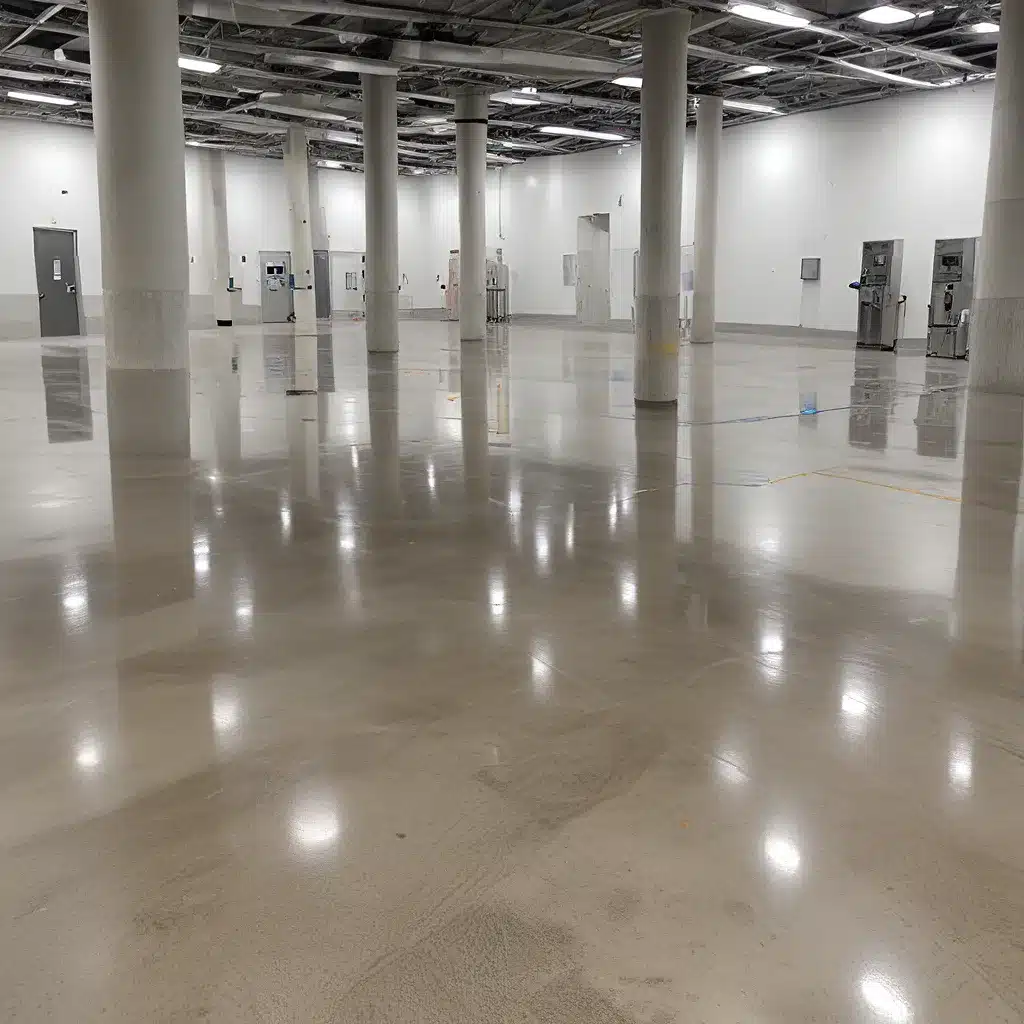
When it comes to the construction and maintenance of pharmaceutical facilities in Kansas City, concrete plays a critical role in ensuring a secure, moisture-free, and vapor-controlled environment. Pharmaceutical labs require an exceptionally high level of humidity control and air quality management, making the selection and installation of the right concrete solutions paramount.
Understanding Concrete Moisture and Vapor Concerns
In the pharmaceutical industry, even the slightest moisture or vapor intrusion can have catastrophic consequences. Excess humidity or condensation can lead to the growth of mold and mildew, which can compromise the sterility and stability of sensitive drug formulations. Additionally, concrete that is not properly sealed or insulated can allow the infiltration of radon, a naturally occurring radioactive gas, posing health risks to laboratory personnel.
To address these concerns, concrete contractors in Kansas City must have a comprehensive understanding of the unique challenges faced by pharmaceutical facilities. This includes:
-
Proper Concrete Mixture Design: Selecting the right concrete mix with the appropriate water-cement ratio, aggregate size, and admixtures to ensure low permeability and optimal compressive strength.
-
Effective Vapor Barrier Installation: Incorporating a robust vapor barrier system beneath the concrete slab to prevent the upward migration of ground moisture and radon gas.
-
Meticulous Surface Preparation: Ensuring that the concrete surface is properly cleaned, profiled, and primed to promote strong adhesion of any subsequent coatings or sealers.
-
High-Performance Concrete Sealers: Applying specialized concrete sealers and coatings that create a durable, moisture-resistant, and vapor-tight barrier on the surface.
-
Ongoing Maintenance and Monitoring: Regularly inspecting and maintaining the concrete surfaces to identify and address any cracks, spalling, or deterioration that could compromise the integrity of the moisture and vapor control system.
Concrete Installation Strategies for Pharmaceutical Facilities
When working on concrete projects for pharmaceutical labs in Kansas City, experienced concrete contractors employ a variety of specialized techniques to ensure optimal moisture and vapor control.
Vapor Barrier Systems
One of the most critical components of a pharmaceutical lab’s concrete foundation is the vapor barrier system. This typically consists of a high-density polyethylene (HDPE) or polyolefin-based membrane installed beneath the concrete slab. The vapor barrier acts as a physical barrier to prevent ground moisture and radon gas from seeping up through the concrete and compromising the indoor environment.
EPA guidelines on vapor intrusion recommend that the vapor barrier be installed with overlapping seams and properly sealed to create a continuous, airtight system. Additionally, the installation should be carefully coordinated with the plumbing, electrical, and HVAC systems to ensure a seamless integration and eliminate any potential breach points.
Concrete Slab Design and Placement
The concrete slab itself must be designed to resist moisture and vapor transmission. This involves using a low water-cement ratio in the concrete mix, which helps reduce the permeability of the hardened concrete. Additionally, the slab should be properly cured and allowed to fully dry before the application of any coatings or sealers.
During the placement and finishing of the concrete, special attention must be paid to surface preparation. This includes grinding, scarifying, or shotblasting the surface to create a rough, porous profile that will promote strong adhesion of the subsequent coatings.
Concrete Sealers and Coatings
Once the concrete slab has been properly prepared, high-performance sealers and coatings are applied to create a durable, moisture-resistant, and vapor-tight barrier. These specialized products are formulated to withstand the aggressive chemical environments often found in pharmaceutical facilities, as well as resist the penetration of moisture and vapor.
Some of the most commonly used concrete sealers and coatings for pharmaceutical labs in Kansas City include:
- Epoxy Coatings: Provide a seamless, impermeable barrier with excellent chemical resistance.
- Polyurethane Coatings: Offer superior durability, abrasion resistance, and flexibility to accommodate minor concrete movement.
- Methyl Methacrylate (MMA) Coatings: Renowned for their rapid curing times and resistance to harsh chemicals and temperature extremes.
These high-performance coatings are typically applied in multiple layers to ensure complete coverage and maximum protection against moisture and vapor intrusion.
Ongoing Maintenance and Monitoring
Maintaining the integrity of the concrete surfaces in a pharmaceutical lab is an ongoing process. Regular inspections and preventive maintenance are crucial to identify and address any issues before they can compromise the sterile environment or pose health risks.
HUD guidelines on moisture and vapor control recommend that pharmaceutical facilities in Kansas City implement a comprehensive maintenance program, which may include:
- Visual Inspections: Regularly checking for cracks, spalling, discoloration, or signs of deterioration in the concrete surfaces.
- Moisture and Vapor Testing: Conducting periodic testing to ensure that moisture and vapor levels remain within acceptable ranges.
- Reapplication of Sealers and Coatings: Reapplying concrete sealers and coatings as needed to maintain the protective barrier.
- Prompt Repair of Defects: Addressing any issues, such as cracks or damage, in a timely manner to prevent further deterioration and moisture/vapor infiltration.
By adhering to these maintenance best practices, pharmaceutical facilities in Kansas City can safeguard their concrete infrastructure and ensure a consistently clean, sterile, and safe environment for their operations.
Conclusion
Maintaining optimal moisture and vapor control in pharmaceutical labs is critical to preserving the integrity of drug formulations and protecting the health and safety of laboratory personnel. Concrete contractors in Kansas City who specialize in pharmaceutical facilities must have a deep understanding of the unique challenges and requirements of this industry.
By implementing a comprehensive approach to concrete installation and maintenance, including vapor barrier systems, specialized sealers and coatings, and proactive monitoring, these contractors can ensure that pharmaceutical labs in Kansas City operate in a secure, sterile, and high-performance environment. Concrete Contractor Kansas City is committed to providing these specialized services to meet the exacting standards of the pharmaceutical industry.

